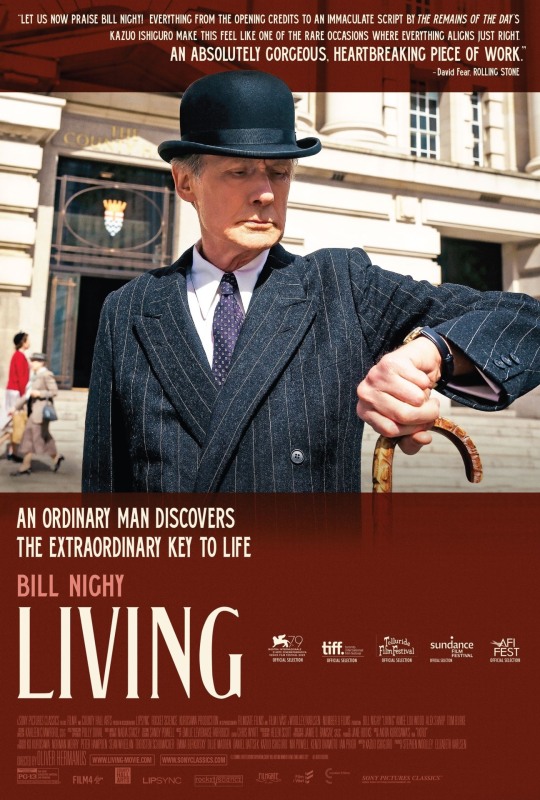#bureaucrats
Text
Uncertainty is always uncertain, but the difficulty with people who rely on systems is that they begin to believe that nearly everything is in some way a system and therefore, sooner or later, they become bureaucrats.
-- Terry Pratchett - Raising Steam
#Terry Pratchett#discworld quotes#GNU Terry Pratchett#quotes#Raising Steam#uncertainty#human nature#systems#bureaucrats
125 notes
·
View notes
Text
SOME OF THOSE THAT WORK FORCES.
ARE THE SAME THAT BURN CROSSES.
Keep watching, keep learning, keep speaking about the crimes against humanity committed by the world's wealthy elite. Just because you sleep comfortably does not make you innocent. The powerful and plentiful of the EU and North America fund the crises in Palestine, in Congo, and in Sudan.
Do NOT desensitise yourself to atrocities committed around the globe, do NOT over-consume traumatic and disturbing materials of human suffering, do NOT stop at reblogging, and DO NOT DISENGAGE OR DROP-OUT.
DO keep reading about the history, listen to the words spoken by the people on the ground and who are there, bring it up at the dinner table, normalise politics in the tearoom, spread kindness, wellness and be grateful for what you have.
#colonialism#post capitalism#indigenous#palestine#sudan#congo#rare earth minerals#metallurgy#open science#open access#new zealand#aotearoa#conservative#judaism#islam#christianity#catholocism#bureaucrats#stratification#gentrification#fauxmoi
34 notes
·
View notes
Text
VENTING
We had a nice bottle of rosé wine from New Zealand for dinner and it was quite pleasant. Out of curiosity I read the label at the back of the bottle and I read the following: "this bottle contains 7.4 standard drinks." The bottle is of course the standard 750ml wine bottle.
Now, people, in New Zealand and elsewhere, have been drinking wine from 750ml wine bottles forever and they know approrximately how many glasses of wine to expect from that bottle, the number of glasses depending on their habits, on their winre glasses, etc.
My questions were then :
who thought that it was necessary to have such a mention on a wine bottle level?
who thought that it was necessary to define a standard drink?
who decided that ti was worth making the effort of doing this?
how was this standard drink determined? By a survey of NZ wine drinkers? By an scientific study based on a standard size of wine glass? Did this require another study or survey?
how much did this all cost and how many people are employed doing that sort of thing?
did anybody ever read that label except for me?
how much did NZ citizens pay in additional taxes to have such an information and standard produced that they do not need?
how pedantic can you be for specifying that, instead of a standard drink being estimated to be 100ml, you should specify that a standard drink is in fact 101.35135135135135135135135135135135135135135135135135135135135135135135135135135135135135135135135135135135135135135135135135135135135135135135135135135135135135135135135135135135135135135135135135135135135135135135135135135135135135135135135135135135135135135135135135135135135135135135135135135135135135135135135135135135135135135135135135135135135135135135135135135135135135135135135135135135135135135135135135135135135135135135135135135135135135135135135135135135135135135135135135135135135135135135135135135135135135135135135135135135135135135135135135135135135135135135135135135135135135135135135135135135135135135135135135135135135135135135135135135135135135135135135135135135135135135135135135135135135135135135135135135135135135135135135135135135135135135135135135135135135135135135135135135135135135135135135135135135135135135135135135135135135135135135135135135135135135135135135135135135135135135135135135135135135135135135135135135135135135135135135135135135135135135135135135135135135135135135135135135135135135135135135135135135135135135135135135135135135135135135135135135135135135135135135135135135135135135135135135135135135135135135135135135135135135135135135135135135135135135135135ml?
what politician or citizen can think that a public good has been produced by having this mention produced and inserted by law or regulation on the label of a bottle of wine?
who evaluated that doing all this had generated any benefit for the NZ citizens?
7 notes
·
View notes
Text

This is why socialism will always fail. While this also happens in capitalism, as it is a constant human nature, succumbing to this companies get replaced by competitors. Because they need to generate profit. Government is a monopoly that earns money by taking it from you at a gunpoint.
#socialism#capitalism#government#politics#ineffable bureaucracy#government bureaucracy#fuck bureaucracy#i hate bureaucracy#bureaucrats#bureaucracy
5 notes
·
View notes
Text
Ask ME any Wizard Question in my Arcane Inbox and I will uncover for you an Answer from my Vast Stores of Literature
6 notes
·
View notes
Text

PLEASE VOTE NO!!!
At the Australian
"VOICE" referendum on Saturday 14.10.2-23
We DON'T need more Politicians,
opening the purse of the Australian Taxpayers!
We have too many overpaid bureaucrats now!
VOTE NO!!
IS THE WAY TO GO!!! ... Misha
4 notes
·
View notes
Photo










Living (2022, Oliver Hermanus)
3/21/23
#Living#Bill Nighy#Kazuo Ishiguro#Aimee Lou Wood#Alex Sharp#Tom Burke#Adrian Rawlins#Hubert Burton#Oliver Chris#Akira Kurosawa#2020s#drama#remake#British#England#London#bureaucracy#bureaucrats#elderly#terminal illness#office#workplace#flashbacks#period#friendship#cancer#father and son#oscar nominee
10 notes
·
View notes
Text
Archivists on the Issues: Sophisticated Bureaucracies, Archives, and Fictional Depictions [part 2]
Continued from part 1
Archivists on the Issues is a forum for archivists to discuss the issues we are facing today. Today’s post is by Burkely Hermann (me), Metadata Librarian for National Security Archive and current I&A Blog Coordinator. There are spoilers for each of the books, animated series, films, and other media he will be discussing. It was originally published on the Issues and Advocacy blog on Jan. 3, 2023. Also posted on my Wading Through the Cultural Stacks WordPress blog on Feb. 13, 2022.
youtube
While bureaucracies are famously criticized in novels like Catch-22 and The Trial, they are a major part of other media, like the acclaimed animated series, Futurama. In the series, Hermes Conrad (voiced by Phil LaMarr), is a bureaucrat who works for the Central Bureaucracy, which manages legal, financial, and business matters in the city of New New York. In one episode, "Lethal Inspection", a physical file archive is shown, with Hermes taking a folder out of a file cabinet. It is later revealed that he was the inspector who approved a defective robot named Bender (voiced by John DiMaggio), after be burns the file.
Brad Houston, a Document Services Manager for the city of Milwaukee, said the physical file archive is really a records center because it has semi-active records. He described how the Milwaukee records center works, noting the importance of filling out transfer forms correctly, pointing out that records are organized by box with specific assigned numbers, and importance of records management training. As another archivist put it, information and records management is as much about understanding bureaucratic processes and human behavior as it is about the records and information.
While there are many other examples of fictional bureaucracies, [10] one specifically comes to mind: the Elven bureauacracy in the children's adventure and supernatural comedy-drama animated series, Hilda. An elf named Alfur (voiced by Rasmus Hardiker) is a series protagonist. Like the other elves in the series, they can only be seen if their tiny paperwork is signed and filled out. In the first episode, the protagonist, Hilda (voiced by Bella Ramsey), tries to come to peace with the elves, who see her as a menace because she stepped through their houses for years without realizing it. In the process, she goes through various Elven political officials who declare there is nothing that can be done and that the matter is out of their hands.
As the series continues, Alfur becomes a correspondent in the city of Trolberg, and files reports about his daily activities in the city, where Hilda is now living. Characters such as Frida (voiced by Ameerah Falzon-Ojo) and Deputy Gerda (voiced by Lucy Montgomery) are shown to care about paperwork as much as him, as does the witchy librarian named Kaisa (voiced by Kaisa Hammarlund). In other episodes, Alfur proudly tells a legendary Elf story about a fight over a real estate contract, he meets a society which doesn't use paperwork, and emphasizes the importance of reading the fine print. The series also features elf-mail, known as "email", which is sent from the countryside into the city with various couriers. Alfur later states that elves pride themselves on the accuracy of historical records and says he is impressed by how Hilda uses loopholes. In the next to last episode of the show's second season, Alfur convinces an elf sent as his replacement to write an eyewitness confirmation form, confirming that his reports from Trolberg, said to be "the most requested from the official archive", are accurate and true.
Hilda, emphasizes importance of accountability within hierarchies more than fictional bureaucracies shown in The Hitchhikers Guide to the Galaxy and Futurama. Alfur is graded on a performance management system and experiences some level of bureaucratic accountability. The latter is achieved, within institutions, through strategies, administrative rules, budget reviews, and performance management. It can also be accompanied by citizen accountability, which attempts to hold government administrators accountable through forums and laws, using communication technologies to directly access bureaucratic information, monitor government activities, and give feedback on delivery of public services. However, Futurama and Hilda make clear the value of records managers (and archivists) who have developed strategies and experience with relationship-building and negotiating bureaucratic politics.
Many archives, these days, are not "faceless" or "nameless" as those in fiction, nor do they encourage falsification of information to protect individuals. Instead, some likely came into existence during the Progressive Era to "lessen anxiety" about issues such as race. While some bureaucratic records, within archives, may be considered "cold", there have been efforts to humanize the files, especially those about human atrocities. Even so, some archivists remain impatient with "inanities" of bureaucracies they are part of. [11]
Bureaucracy remains part and parcel of archives. There have been efforts, in recent years, to reduce bureaucracies said to be "overlapping" and related claims that government by bureaucracy is dead or no longer necessary. Despite this, committing information to paper, then managing, or shuffling, that paper within a bureaucracy remains a "source of an essential power." After all, records have the power to legitimize bureaucracy, while promoting political hegemony and constructing social memory. In fact, in the 1985 film, Brazil, a controlling bureaucracy rules people's lives and crushes spirits. [12] The film's protagonist, Sam Lowry, has been described by some as an archivist who has "dreamlike moments" and sees himself as a winged superhero. He tries to tamper with data in order to save the woman he loves before his vision is shown to be an illusion.
While there won't be any "bureaucratic cock-ups" or Vogan Constructor Fleets demolishing Earth to make way for a hyperspace expressway, [13] sophisticated and complex bureaucracy will remain an integral part of archives, whether we like it or not.
© 2022-2023 Burkely Hermann. All rights reserved.
Notes
[10] The Wikipedia category "Bureaucracy in fiction" lists 50 entries, including Loki TV series, the anti-communist novel 1984, One Flew Over the Cuckoo's Nest, and The Pale King.
[11] Yakel, Elizabeth. "Reviews." The American Archivist 64, no. 2 (2001): 407-409; Pierce, Pamela. "Cruising the Library: Perversities in the Organization of Knowledge." The American Archivist 81, no. 1 (2018): 262; Arroyo-Ramirez, Elvia. "Paper Cadavers: The Archives of Dictatorship in Guatemala." The American Archivist 80, no. 1 (2017): 244-245; Jimerson, Randall C. "Archiving the Unspeakable: Silence, Memory, and the Photographic Record in Cambodia." The American Archivist 78, no. 1 (2015): 265-266; Radoff, Morris. "Recent Deaths." The American Archivist 42, no. 2 (1979): 264.
[12] Baker, Kathryn. "The Business of Government and the Future of Government Archives." The American Archivist 60, no. 2 (1997): 237, 241, 252; Cline, Scott. "'To the Limit of Our Integrity': Reflections on Archival Being." The American Archivist 72, no. 2 (2009): 331-333, 340. Cline also says that records can reinforce cultural mythology, and bolster democracy and democratic institutions.
[13] Adams, Douglas. “The Hitchhiker’s Guide to the Galaxy.” In The Ultimate Hitchhiker’s Guide, 16, 25-26. New York: Gramercy Books, 2005. Vogans are also described, on page 38. as "one of the most unpleasant races in the galaxy...[not] evil, but bad-tempered, bureaucratic, officious and callous".
#hermes conrad#futurama#bureaucracy#bureaucrats#the trial kafka#kafka#records center#records management#hilda#elves#alfur aldric#alfur hilda#kaisa hilda#hilda librarian#brazil film#vogans#the hitchhiker's guide to the galaxy#archives#archival#archival science#archival studies#Youtube
5 notes
·
View notes
Text
As the reader will have noticed already, Don Abbondio did not come into the world provided with the heart of a lion. But from his earliest years he had had to learn that the worst of all conditions at that period was the state of an animal which had neither claws nor teeth, and yet had no inclination to be devoured. For the forces of the law gave no protection to the tranquil, inoffensive type of man, who had no other means of inspiring fear in anyone else.
We do not mean that there was any lack of laws with penalties directed against private acts of violence. There was a glut of such laws in point of fact. The various crimes were listed and described and detailed in the most minute and long-winded manner. The penalties were of insane severity; and, as if that were not enough, they were almost invariably subject to augmentation at the whim of the magistrate himself, or of any one of a hundred subordinate officials.…
But in spite of all this – indeed largely because of it – those proclamations, repeated in ever stronger terms by each successive government, only served to provide a pompous demonstration of the impotence of their authors. If they had any immediate effect, it lay principally in the addition of many new harassments to those which the pacific and the weak already suffered from their tormentors, and an increase in the violence and the cunning shown by the guilty; for their impunity was an organized institution, and had roots which the proclamations did not touch, or at least could not shift. There were places of asylum; there were privileges attached to certain social classes, which were sometimes recognized by the forces of the law, sometimes tolerated in indignant silence, and sometimes disputed with empty words of protest. Meanwhile the favoured classes upheld and defended those privileges with deeds showing the activity which comes from personal interest, and the jealous concern associated with the point of honour.…
What the proclamations could do was to put stumbling-blocks in the way of simple folk, who had no special power of their own nor protection from others, and harass them at every step they took. For the proclamations were framed with the object of keeping everybody under control, in order to prevent or punish every sort of crime; and so they subjected every action of the private citizen to the arbitrary will of all kinds of officials.
—Alessandro Manzoni, The Betrothed (1840), ch 1, pointing back to the 1590s
2 notes
·
View notes
Text

Comic of this here.
31K notes
·
View notes
Text
They want war, even with false promises
#US endless #wars in #bureaucrats' hands
#West #migration policy twds civil wars
#Ukrainians fled abroad to avoid #draft try to cut #ties completely
9 in 10 #NewYorkers:#food rising cost outpaces our #incomes
#Biden,#EC arming #Kiev:"war is peace".. LOL
https://salvatoremercogliano.blogspot.com/2024/04/they-want-war-even-with-false-promises.html?spref=tw
#us#endless wars#bureaucrats#migration#civil war#ukrainians#abroad#draft#ties#new yorkers#food costs#incomes#joe biden#ec#arming#war is peace
0 notes
Text
nothing beats the occasional boost of self esteem that comes from taking on the system. do i fear for my sanity, my wellbeing, and my safety? hell yeah. but in taking on an institution, do i at least feel some semblance of a dopamine rush knowing that i am undermined because they have no idea how much activism i've done in the past? also hell yeah. the funny thing about a university trying to push things under the rug is that they overestimate the willingness of their students to take it lying down. fuck bureaucrats, but also god bless their smug and self-important exteriors. without that, i couldn't make them sweat
#university#social justice#fight the system#bureaucrats#bureaucrats suck ass#i hate it here#i got this#im so tired#ahhhhhhh
0 notes
Text
Hungary pledges to thwart efforts by globalist European bureaucrats like Guy Verhofstadt to impose sanctions on Tucker Carlson for his interview with Russia’s Vladimir Putin.
1 note
·
View note
Text
The dumbest word I
Ever heard a bureaucrat
Utter was ‘cadence’.

0 notes
Text

@GovRonDeSantis
@LtGovNunez
@FLDCFSecretary
@AGAshleyMoody
@ErikDellenback
Today's BIP Lesson-Using Privilege (Elected or Appointed) It's Friday & under the DeSantis Administration faith-based Batterers Intervention Program providers are still abolished by FLDCF. Choose wisely.
p.s. it's #buynothingtoday since you have not allowed faith-based BIP providers to work for over a year.
0 notes
Text
From Conflict to Harmony: A Tale of Two Realities
In a world gripped by the tragedies of conflict, we find ourselves torn between the desolation of war and the beacon of hope that unites us—sports. The recent events in the Israel-Palestine conflict have cast a shadow on humanity, with lives lost, infrastructure shattered, and livelihoods extinguished. It's a stark reminder of the fragility of peace and the urgent need for unity.
Amidst these somber circumstances, a glimmer of hope emerges on the other side of the globe. The International Olympic Committee, in a symbolic gesture, inaugurates its proceedings at Mumbai in the presence of Shri Narendra Modi ji and president of international olympic committee Mr. Thomas Bach.
As the world witnesses the devastation of war, the IOC, through the words of Mrs. Nita Ambani, emphasizes the crucial role of sports in fostering holistic human development. The vision resonates with PM Modi's belief in sports as a catalyst for unity, breaking down barriers and fostering a sense of belonging —an ode to the noble idea of "Vasudaika Kutumbakam" or "One World, One Family," as championed by India's Prime Minister Narendra Modi.
The recent Asian Games showcased India's prowess in sports, with numerous winners emerging from humble family backgrounds. PM Modi is happy about the children of Inda performing well and he also congratulated Indian cricket team at the same dias for winning yesterdays match of world cup cricket against Pakistan. This success story highlights the transformative power of sports, offering opportunities for all, irrespective of socio-economic status. All this can only be possible with creating infrastructure available for all aspiring sportsmen without any boundaries.
However, to facilitate the journey from humble beginnings to global success, the importance of robust sports infrastructure cannot be overstated. This is where bureaucrats in India specially the heads of the districts who are the district collectors can play a pivotal role in shaping the nation's sports landscape, thereby nurturing human potential.
District Collectors, as the administrative heads of districts, hold a pivotal position in the Indian bureaucracy. They are entrusted with the responsibility of not only overseeing law and order but also with the development and welfare of the region they serve. In recent times, an increasing number of District Collectors have recognized the transformative power of sports in shaping the future of their districts.
Their role extends beyond merely maintaining law and order. They are actively involved in the overall development of their districts. This includes areas like education, healthcare, infrastructure, and, crucially, sports. Sports have emerged as an effective tool for human development and societal transformation.
Empowering the youth, especially those hailing from humble backgrounds, is a key goal. District Collectors are driven by the vision that every child, regardless of their socio-economic status, should have access to opportunities that enable them to become champions not only in sports but also in life.
One such District Collector who has led visionary initiatives to promote sports at the grassroots level is Hari Chandana IAS. During her tenure as the Collector of Narayanpet District, Telangana, she laid the foundation for a brighter future. Her dedication to human development through sports is an embodiment of the collective investment needed to shape future global champions.
Hari Chandana IAS's belief is simple yet profound: with the right opportunities, every child can become a champion. During her time in Narayanpet District, she focused on providing accessible sports grounds for children with dreams of excelling in sports. These initiatives were rooted in her firm conviction that the infrastructure for sports and opportunities for children should not be bound by socio-economic barriers.
The transformative potential of sports extends to all aspects of human development. Sports foster discipline, teamwork, leadership, and a sense of purpose. They contribute to the physical and mental well-being of individuals. Moreover, they create a sense of unity and togetherness that transcends divisions.
The influence of District Collectors like Hari Chandana IAS in promoting sports infrastructure and, consequently, human development is a testimony to the power of collective investment in nurturing future champions. Their vision resonates with the ideals of a united and empowered India, which stands as a beacon on the global stage.
In conclusion, as we reflect on the devastation of conflicts worldwide and the uplifting spirit of sports, we realize that sports can be a powerful force for human development. Bureaucrats, specifically District Collectors, play a pivotal role in promoting sports infrastructure. Hari Chandana IAS's visionary initiatives underline the transformative potential of sports. It's not a question of whether sports can shape lives; it's a question of how far we are willing to go to realize this vision of a united and empowered world.
#Sports#Human Development#Bureaucrats#Sports Infrastructure#Sporting India#Olympics 2036#New India 2047#She Inspires Us
0 notes